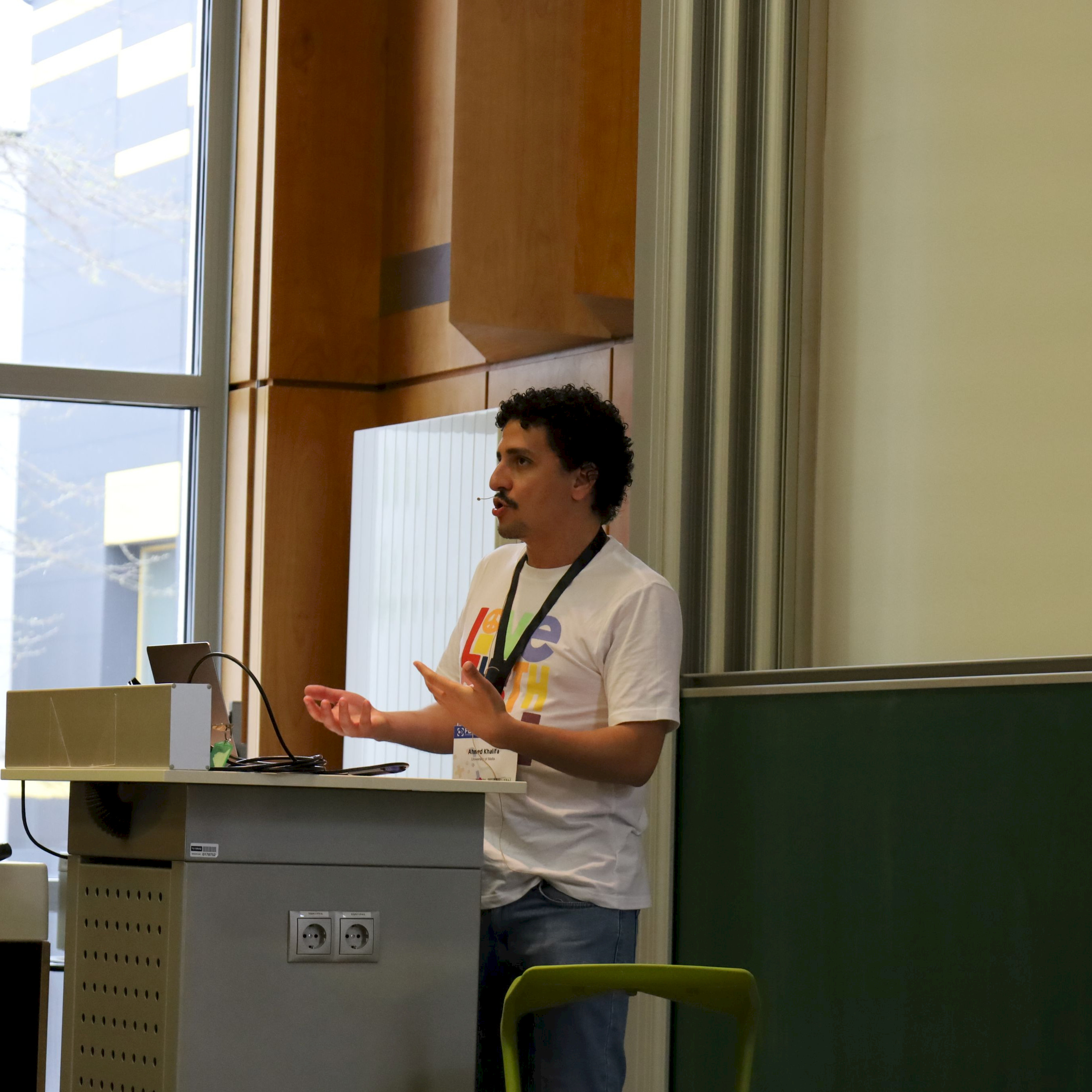
Research in Procedural Content Generation presented at the FDG conference


Two members of staff attended the 20th Foundations of Digital Games Conference which took place in Vienna & Graz, Austria during April 15-18 2025. Prof. Antonios Liapis presented the paper "Diverse Level Generation via Machine Learning of Quality Diversity" co-authored with Konstantinos Sfikas and Georgios N. Yannakakis. The paper introduces a new method, Machine Learning of Quality Diversity (MLQD), for generating content that combines artificial evolution and machine learning (ML). An efficient algorithm for divergent search via artificial evolution produces a large and diverse dataset of playable levels, which is used as training set for a Transformer ML architecture. The paper was presented at the workshop on Procedural Content Generation and led to lively discussions about the potential of Quality-Diversity search as complementary dataset generation. Moreover, Prof. Liapis chaired the workshop on Tabletop Games which included four papers on topics related to hybrid board game play (with a digital component) as well as board games for learning. The workshop included a hands-on workshop where participants designed variations of the traditional Austrian card game Schnapsen with the use of Mixed-Reality technologies and VR headsets. Finally, Dr. Ahmed Khalifa presented the paper "The Procedural Content Generation Benchmark: An Open-source Testbed for Generative Challenges in Games" as a collaboration between the Institute of Digital Games and New York University. The paper introduces a benchmark for evaluating generative algorithms on different game content creation tasks. The benchmark comes with 12 game-related problems, such as Super Mario levels, word games, or spaceship combat scenarios. The benchmark can be useful for teaching procedural content generation and for comparing AI algorithms' performance in diverse problems. The 20th Foundations of Digital Games Conference offered an excellent oportunity for the Institute of Digital Games to highlight its contribution in the field of Technical Games Research, where it remains highly relevant at the 5th place of such institutions, outranking Meta and Google in this field.

